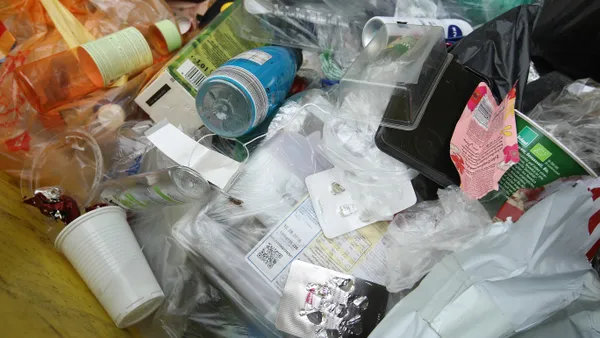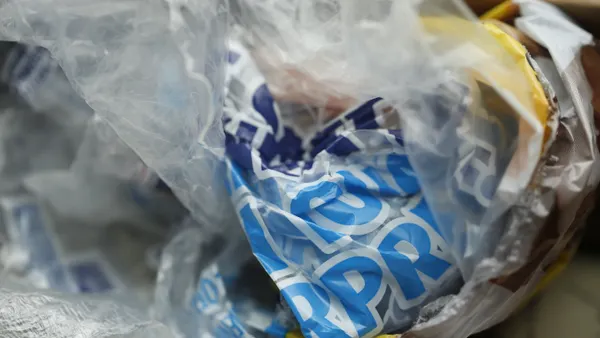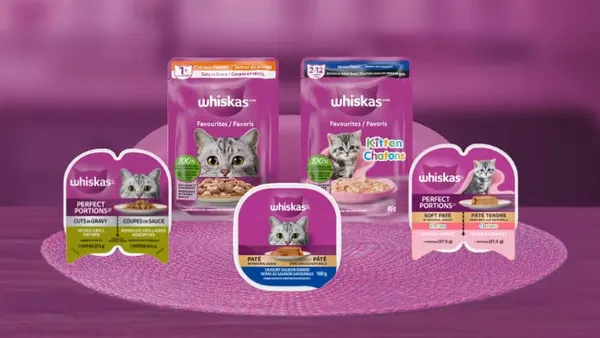Dive Brief:
- A team of U.S. Department of Agriculture (USDA) researchers have discovered a way to turn the milk protein casein into edible, biodegradable packaging which could replace plastic film in some applications, as reported by Bloomberg.
- The researchers say this casein-based film is up to 500 times more effective than plastic at keeping oxygen out of food and preventing spoilage. The film is also stronger than existing starch-based biodegradable packaging.
- In addition to casein, the film also includes glycerol to make it softer and citrus pectin to make it more resistant to high temperatures. Other additives and vitamins could potentially be included to make the film more flavorful. Potential uses include cheese slices or sticks, dried coffee and other single-serving items.
Dive Insight:
A number of other innovative edible packaging ideas have also come out in recent years including film made from shrimp shells, six-pack rings made from spent grain and toothpaste pods that dissolve in your mouth. All of these have great potential for eliminating disposal challenges around tricky items. For example, plastic film can technically be recycled and is accepted through drop-off programs but there is currently no effective way to handle small quantities of it.
"Everything is in smaller and smaller packaging, which is great for grabbing for lunch, for school, but then it generates so much waste," Laetitia Bonnaillie, a USDA researcher, told Bloomberg. "Edible packaging can be great for that.”
In addition to its potential for reducing plastic waste and food spoilage, casein also has other interesting potential uses in liquid form. Current ideas include using it to preserve cereal's crunchiness without added sugar and coating pizza boxes to prevent grease leakage. The USDA team recently presented its work at the American Chemical Society's annual meeting and is creating prototype samples for a Texas company. Bonnaillie predicts that consumers could see casein film in stores within three years.










